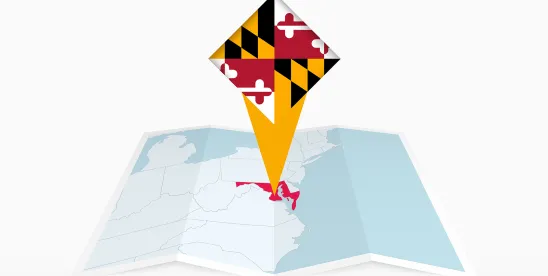Introduction
On May 13, 2025, Maryland became the sixth state to enact Extended Producer Responsibility (EPR) laws for paper and packaging material. Washington is poised to become the seventh. In Washington, the bill has passed the House and Senate, needing only the signature of Gov. Ferguson to become law. These bills have the potential to dramatically alter how businesses operate within the state.
EPR laws are regulatory frameworks that assign producers the responsibility for the end-of-life management of their products. Producers are typically the manufacturers, brand owners, licensees, importers, and/or distributors of the product.
In addition to Maryland, California, Colorado, Maine, Minnesota, and Oregon enacted EPR programs for packaging. These laws require producers to fund their discarded products’ collection, sorting, and recycling. Producers typically achieve this by joining and paying fees to a Producer Responsibility Organization (PRO), which develops a program implementation plan. These laws also require producers to report on the quantity and type of packaging material brought into the state, and to pay fees set by the PRO. Each state law varies slightly with respect to reporting deadlines, exemptions, the obligated entity, covered materials, and the fee structure. For a more detailed analysis of the producer obligations in these states, please refer to B&D’s client alert. Both Maryland’s and Washington’s bills generally follow the framework of the enacted state laws.
Maryland
Covered Materials
Maryland’s EPR bill, SB 901, passed the General Assembly on April 7, 2025, and Governor Moore signed it into law on May 13, 2025. The bill defines “covered materials” as packaging and paper products sold, offered for sale, imported, or distributed in the State. The bill contains limited exemptions, including packaging for infant formula, and packaging used to contain hazardous or flammable products.
Packaging: The bill defines covered “packaging” as a material, substance, or object used to protect, contain, transport, serve, or facilitate the delivery of a product that is sold or supplied with the product to the consumer for personal, non-commercial use. This definition includes primary, secondary, and tertiary packaging and service packaging such as carry-out bags, bulk good bags, take-out and home delivery food service packaging, and beverage containers with a volume of less than 5 liters.
Paper Products: The bill defines covered “paper products” as “products made primarily from wood pulp or other cellulosic fibers.” This definition excludes bound books and products not accepted by materials recycling facilities or composting facilities due to the unsafe or unsanitary nature of the product.
Obligated Producers
The bill includes a hierarchical definition of obligated “producers” in terms of the type of covered material and the company’s relationship to the material when it is sold, distributed, or otherwise used in Maryland. Similar to enacted EPR laws in other states, Maryland’s bill largely obligates the brand owner of the product sold in product packaging. The obligations apply to both products sold at a physical retail location in Maryland, and products sold or distributed via e-commerce. Producers are exempt if they have introduced less than one ton of covered material into the State or, earned global gross revenues of less than $2 million in their most recent fiscal year.
Key Dates and Deadlines for Obligated Producers
- July 1, 2026:
- Producers must file a registration form with the Department
- April 1, 2027:
- Producers must submit their initial producer responsibility plan to the Department
- July 1, 2028:
- Producers must submit an updated or revised producer responsibility plan to the Department
- July 1, 2029:
- Producers must report annually to the Department
- Selection of PRO
- Though the needs assessment required by SB 222, Maryland selected the Circular Action Alliance as their PRO in October 2023
- Start of Producer Obligations
Producers must reimburse local governments for the costs per ton of collecting, transporting, and processing recyclable or compostable packaging materials. The reimbursement percentage, based on the cost per ton, increases over time as follows:
- 50% by July 1, 2028;
- 75% by July 1, 2029;
- 90% by July 1, 2030.
Washington
Covered Materials
Washington’s EPR bill, SB 5284, passed the state legislature on April 14, 2025. The bill defines “covered materials” as packaging and paper products introduced into Washington state.
Packaging: The bill broadly defines “packaging” as “a material, substance, or object that used to protect, contain, transport, serve, or facilitate delivery of a product and that is sold or supplied with the product to the consumer for personal, noncommercial use.” Exclusions are similar to those in the Maryland bill, including packaging for infant formula or hazardous products.
Paper Products: “A material, substance, or object that is used to protect, contain, transport, serve, or facilitate delivery of a product and that is sold or supplied with the product to the consumer for personal, noncommercial use.” This definition excludes bound books, conservation- and archival-grade paper, newspapers (including supplements or enclosures), and magazines with a circulation of fewer than 95,000. The definition includes content derived from primary sources related to news or current events, copy paper, paper for use in building construction, and paper that can be reasonably anticipated to become unsafe or unsanitary to handle.
Obligated Producers
At a high level, any company that sells, distributes, or imports products with packaging can be subject to Washington’s EPR bill, provided the company does not meet a statutory exception. The EPR bill also applies to companies that sell, publish, or own/license brands or trademarks of paper products.
Similar to Maryland and other states with enacted EPR laws, Washington’s bill includes a tiered definition of “producer” that typically obligates the brand owner of the item sold in covered packaging and applies to packaging for items sold or distributed both at physical retail locations and online. The bill exempts producers who, in their most recent fiscal year, introduced less than one ton of covered materials into Washington with a global gross revenue (not including on-premises alcohol sales) for the prior fiscal year of less than $5 million.
Key Dates and Deadlines for Obligated Producers
- March 1, 2026
- Producers must register with Washington State Department of Ecology (Ecology)
- PROs must register with Ecology
- July 1, 2026,
- Producers must be a member of a PRO or register as a PRO that will implement an individual plan
- September 1, 2026
- PROs must make a one-time payment to Ecology, in an amount determined by Ecology, to cover program costs through June 30, 2027
- March 31, 2027 and annually thereafter
- Ecology must determine the total annual registration fee paid by each PRO that is adequate to cover, but not exceed, the costs to implement, administer, and enforce the program
- October 1, 2028 and every five years thereafter
- PRO must submit a draft plan to Ecology that describes the proposed operation of the program
- March 1, 2029
- Producers that have not registered with a PRO or are not acting as an independent PRO may not introduce covered material into Washington
What Should I Do?
Product manufacturers, brand owners, and retailers should conduct a legal analysis to evaluate whether they meet the definition of “producer” under the Washington and Maryland frameworks. Obligated producers should conduct supply chain analyses to determine the extent to which they sell covered products and register with the PRO by the deadlines listed above. Producers should also prepare to comply with reporting obligations.









 />i
/>i
